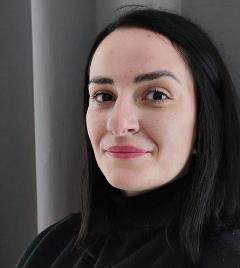How Eszter Gal, EMEA Account Manager, AltoVita, has changed her job into providing humanitarian rather than corporate relocation.
 At the foot of the mountains in North Romania, in a small town called Sighetu Marmației (home of Nobel Peace Prize laureate and Holocaust survivor, Elie Wiesel) an emergency relocation effort is going on 24/7.
At the foot of the mountains in North Romania, in a small town called Sighetu Marmației (home of Nobel Peace Prize laureate and Holocaust survivor, Elie Wiesel) an emergency relocation effort is going on 24/7.
For Eszter Gal, a half-Hungarian, born in Romania, with friends and colleagues in Ukraine, the rescue effort is a very personal story. So close that she has turned her ‘normal’ hours corporate day job with AltoVita, the corporate accommodation company, into a 24/7 relief effort moving over as many Ukrainian and international assignee citizens as possible.
In that time she had been relocating both Ukrainian and Russian families, predominantly employees of multinational companies during her day job at AltoVita, as well as her fellow AltoVita colleagues who were working in Kyiv.
“The situation changes minute by minute,” she says. “One day we are sourcing funds for bulletproof vests, the next we are browsing for flashlights, head torches, thermal socks, tents, medicine and even horse food. We have built strong bonds with fellow volunteers from across Europe, war veterans from the Netherlands and Ireland, and of course the Ukrainian Red Cross; friendships which I will never forget.”
The ever-changing situation at the borders made me realise that AltoVita’s live database of hospitality providers accepting assignees with very little notice is needed more now than ever. This type of business intelligence is also necessary for international companies, who are still working through their contingency planning.”
Meanwhile, the enquiries via relocation organisations flood in - either to neighbouring countries and borders of Ukraine for those hoping to return, or for further flung countries such as Spain, France and even Canada for those fortunate to have relatives in those locations.
Relocation has never faced such challenges. Within just a few days most Eastern cities in Poland were at their full capacity, the same in Slovakia and Hungary. The destination cities on the list are filled almost daily. With a few AltoVita colleagues still in Ukraine, out of which two are in Kyiv, Eszter feels somewhat emotionally involved and is on standby to put in place an emergency relocation plan for them. “I’ve only been part of AltoVita for nine months but I feel part of a family. Also having access to the company’s emergency escalation process has helped support me and provided the sense of urgency we need. Whether arranging goods to be delivered prior to their arrival at their temporary, or even permanent accommodation, or helping connect them to their company networks, we are using our relocation processes at a time they are most needed.”
It’s a heartbreaking and desperately unfair situation, where everyone is helping as much as they can. Grandmothers bake trays of cakes and offer them out at the crossing point, people in financial difficulty share whatever they can from jars of jam, to bags of potatoes and apples. Police line the border with teddies and toys so the children can pick them up on their way into Romania.
At a time when we might question our faith in the world, these acts of good help to unify and get us through it together. “I would also like to mention my friends from the UK and Romania,” says Eszter. “They have contributed financially and also provided many useful goods such as diapers, baby clothes, brand new clothing for the soldiers, mountains of food and medicine, which were sent off to the Red Cross in Ukraine.”
Photo: Eszter Gal.